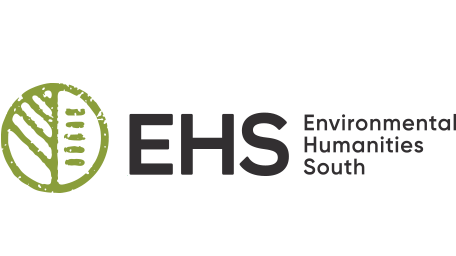Researching wet landscapes: Lauren Culverwell's CZA fieldwork experience

My Ph.D project examines contamination flows in the watery landscapes of the Cape Flats, focusing on the Big Lotus River, Zeekoevlei, the Strandfontein Sewage Works and its sewer network, and the Zeekoe Canal. In January 2024, I temporarily moved to Zeekoevlei to gather background information, while awaiting research approval from the City of Cape Town. I kept a daily diary of ethnographic descriptions and had countless conversations with residents about water contamination, while at the same time collecting life histories and anecdotes. These formal and informal interviews often took place as we walked, boated, birdwatched or drove through the sites. The aim was not just to discuss the zones but to connect with them. Beyond these engagements, I also interviewed numerous disciplinary experts who have worked in the area, including environmental chemists, freshwater ecologists, community health advocates, environmental consultants, a civil engineering researcher and a policy consultant.
Following Professor Lesley Green's advice, I traced the material flows within the zones through a 'muddy boots' methodology. 'Muddy boot' field days allowed the field to embed itself in me as I embedded myself in it. After hauling water hyacinth onto boats or pulling solid waste out of the sludge, mud clung to me like a second skin. When I was behind my laptop getting lost in the digital bog of information or compiling field notes, these reminders pulled me back down to earth, reminding me of the materiality of my work. At the invitation of the Friends of Zeekoevlei and Rondevlei, I shadowed media meetings, interviews and research trips on topics ranging from the biocontrol of water hyacinth to the Zeekoevlei dredging project. I volunteered in the False Bay Nature Reserve through Nature Connect, gathering background information on the inner mechanisms of management and attended public events like World Wetlands Day and the dredging information sessions. The engagements taught me that zones are multidimensional entities, alive with connections and disconnections, presences and absences, absurdity and mundanity.
After a break from the field, I realised that I did not have enough information on environmental governance, and this led me to engage with local PAAC, and joined the newly formed Zeekoe Catchment Forum. I also became more involved in wider community-city collaborations and formulated surveys and reports of WESSA Friend Groups. With the help of field guide Dale Issacs, I have also started to take journeys along the Big Lotus River, from its source at the Cape Town International Airport to the Zeekoe canal mouth. As we follow the river through the Cape Flats, I engage and interview community members to live alongside its banks. I also organised art-based workshops on 'contamination and water' with residents, encouraging participants to create visual narratives. At present, I am working on further arts-based initiatives in partnership with Amava Oluntu, a Cape Flats activist organisation. In addition to on-the-ground fieldwork, I have started exploring Cape Flat's historical socio-environmental fabric through archival materials and GIS. In February, I received permission to start water testing (for heavy metals and PFAS), which will commence in the Summer of 2025. I am still waiting on a number of approvals from the City. These include an official tour of the wastewater treatment works with staff interviews, ethnographic field trips with sewer maintenance teams along Big Lotus River with staff interviews, a tour of the aquifer recharge plant, and observation sessions of the dredging of Zeekoevlei.
Lauren Culverwell is a PhD student in the Critical Zones Africa project, funded by Science for Africa Foundation (SFA)
